A park visitor recently dropped a full bag of Cheetos in the middle of a cavern — something that could’ve had devastating effects on the entire ecosystem.
The processed food was dropped in the “Big Room” of New Mexico’s Carlsbad Caverns, which is known to be the single largest cave chamber by volume in North America.
As the snack marinated in the damp environment, it formed the perfect environment to host microorganisms and fungi—life that does not belong in those caves. This seemingly small action can send shockwaves throughout the local ecosystem, and authorities were quick on their feet to take action.
The small bag of dropped cheetos would have introduced invasive organisms if not treated properly
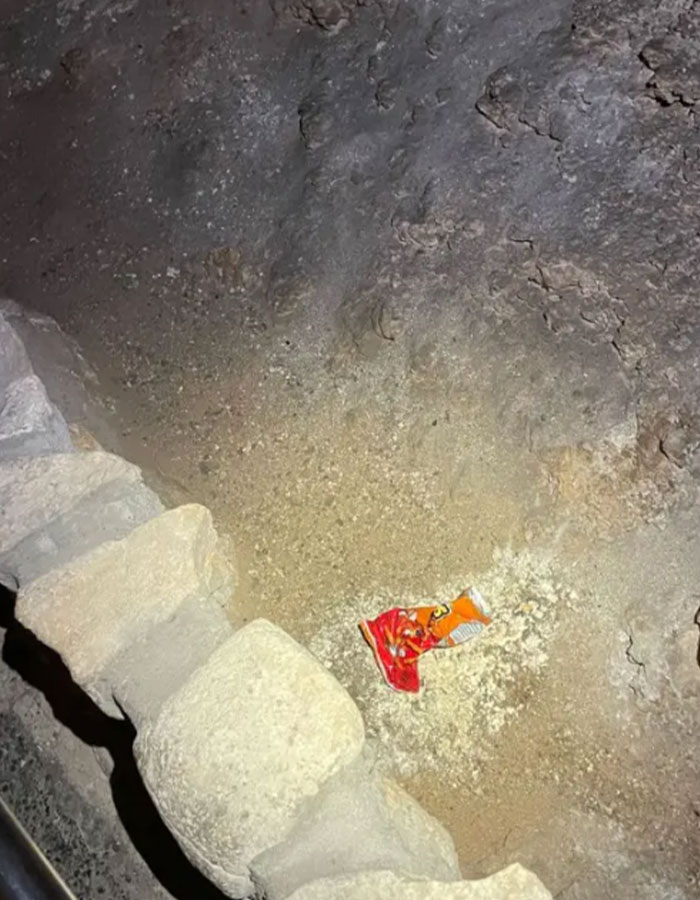
Carlsbad Caverns National Park shared their thoughts in a Facebook post, mentioning that these impacts are “completely avoidable.”
“At the scale of human perspective, a spilled bag may seem trivial,” it read, “but to the life of the cave, it can be world changing.”
Microbial life such as cave crickets, mites, spiders, and flies would have organized into a temporary food web and dispersed nutrients to the surrounding environment, spreading mold along all nearby surfaces.
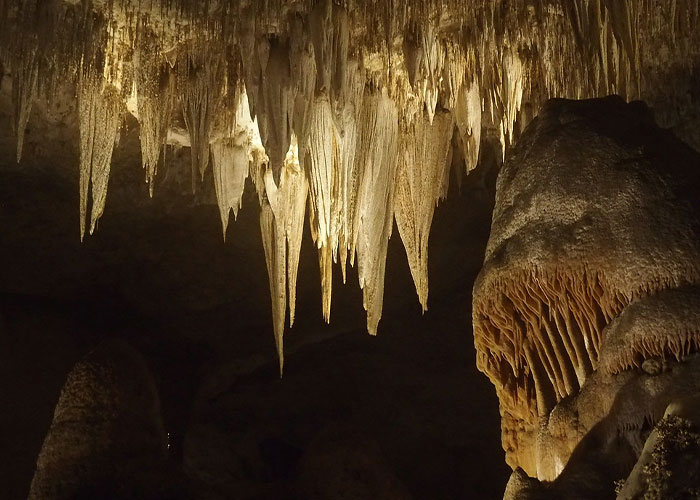
Any native cave-dwellers would likely be eliminated since invasive species thrive by competing for limited resources.
Caves are particularly vulnerable to these sorts of occurrences. As they are mostly isolated from the rest of the world, the organisms they host have adapted to the environment and may be sensitive to foreign animals and objects.
If a new species is added in the mix, it would upset the balance of biodiversity.
Park rangers spent significant time making sure there were no more traces of foreign debris
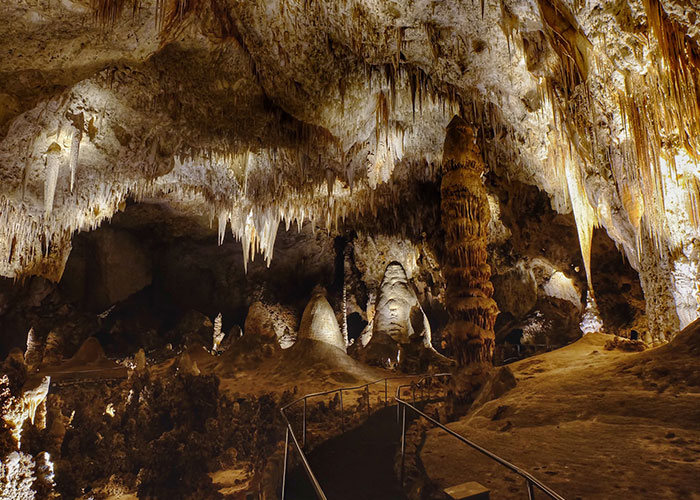
Employees of the national park worked for 20 minutes to clean up the trash and mold from the cave’s surface, in hopes that there would be no lasting impact.
“Great or small, we all leave an impact wherever we go. Let us all leave the world a better place than we found it,” the post concluded.
The park’s website also states that food and water are prohibited in the cavern, with the exception of plain water. Bringing anything else may attract animals that don’t frequent the area.
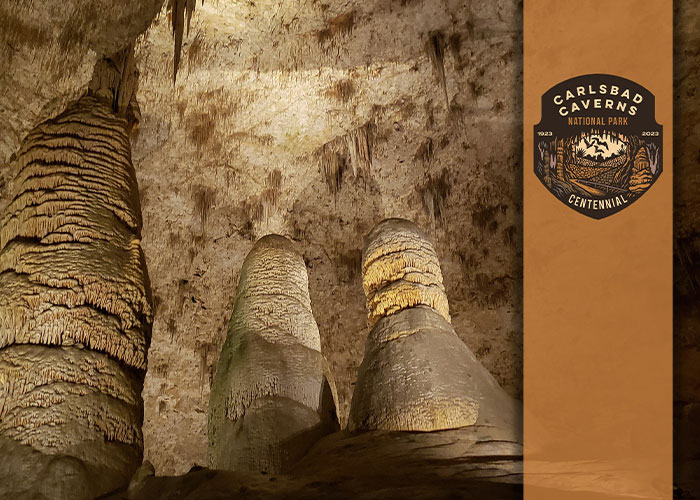
Their social media posts also vocalize their belief in the “Leave No Trace” principle, asking visitors to dispose of trash properly.
“Contrary to popular belief, the cave is NOT a big trash can,” it wrote. “Even still, rangers walk the trails at the end of every day and pick up waste left behind.”
The incident that occurred in Lascaux Cave is a perfect example of how fragile these cave ecosystems truly are
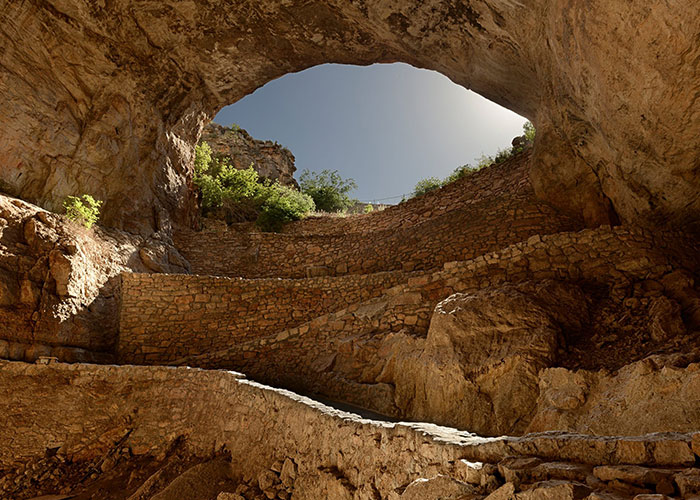
Located in southwest France, the Lascaux Cave was home to some of the world’s most famous prehistoric cave paintings. It was later discovered by a swarm of researchers and tourists in the 1940s, which led to its downfall.
The group of people raised the heat and humidity levels and also introduced new microorganisms into the area. Fungi and lichen quickly bloomed under the new air conditions, and the murals suffered greatly.
The humans did not mean any harm, but by just breathing on the paintings, significant damage was done. The caves closed to the public in the 1960s to prevent further deterioration of the murals.
Netizens express their thoughts at the visitor’s actions, conveying their frustrations
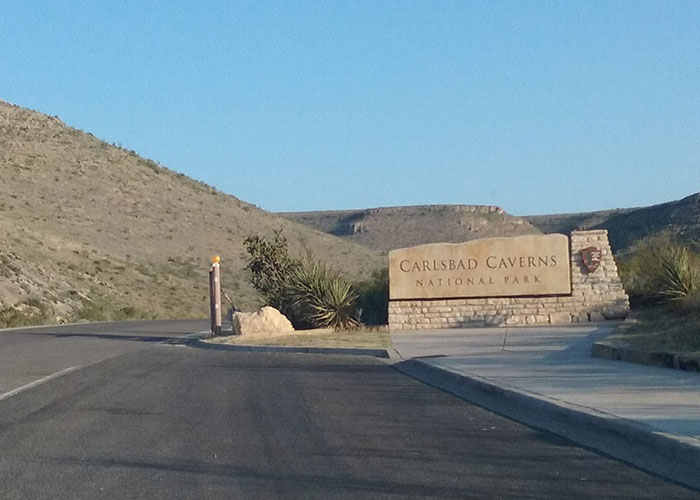
One user commented, “This person has destroyed an incredible place that took millions of years to create. I am blessed to have visited these beautiful caverns.”
Another said, “This isn’t funny at all. It could actually ruin the cavern.”
Users on Facebook were concerned for the cavern’s fragile environment















